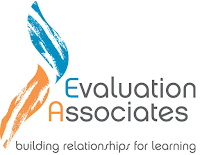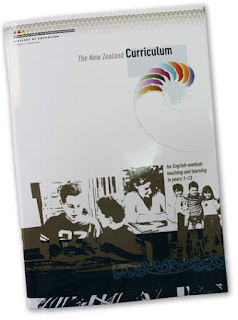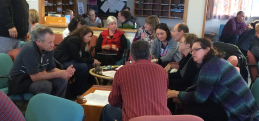 Mindsets in the Classroom is a well written book for school leadership and teachers alike. It address Carol Dweck's (click here for book review) notions of fixed and growth mindsets. Mary works from many angles, student/parent/teacher/administrator. She presents a school wide systematic approach to embedding a growth mindset.
Mindsets in the Classroom is a well written book for school leadership and teachers alike. It address Carol Dweck's (click here for book review) notions of fixed and growth mindsets. Mary works from many angles, student/parent/teacher/administrator. She presents a school wide systematic approach to embedding a growth mindset. In all honesty I have been working under the fixed mindset for the majority of my career. With teaching of Mathematics I would regularly see the differences in students skill in my subject. As I've aged I can see more that 'skill' is often exposure. Those best at arithmetic most likely have had more exposure. Reading more about growth mindset the more benefit I see it in for a school community.
At it's heart growth mindset is about grit and determination. Seeing the challenge of learning and not shying away. I prefer a world where attitude takes you further than talent.
Mindsets in the Classroom begins by establishing the research on malleability of intelligence, quickly challenging educators to consider their own beliefs around IQ; “The first stop along the path to building a growth mindset culture is to begin to build a school culture that values intellectual growth with a staff who has internalized the belief that intelligence can be cultivated.” (p. 13)
Ricci uses real life examples to illustrate her points. A significant section of Mindsets in the Classroom is written for parents. Having three young ones I found this to be riveting reading and picked up some good tips. “When adults praise what a child ‘is’ such as tall or smart, the child attributes their accomplishment to a fixed trait they were born with. When adults praise actions or tasks that children ‘do’, the children attribute accomplishment with their own effort.” (p. 20)
There is a strong emphasis on quality pedagogy to complement growth mindsets. Specifically Ricci is critical of teaching that doesn't offer differentiation. That one of the core responsibilities of teachers it the ability to recognise the learning needs of the students and provide appropriate learning to those individuals. Tying in well with this was a comprehensive section on formative assessment, how to best use it, manage the data and react to what it says.
I enjoyed this book. I found that Ricci's ideas are well considered and easily communicated. I will use this and Dweck's material as key source for some staff professional development. I would recommend this book to any teacher or parent.
This post relates to RTC#8. "Demonstrate in practice their knowledge and understanding of how ākonga learn." and RTC#7. "Promote a collaborative, inclusive and supportive learning environment."










